Research spanning from a decade (2014-2024) of analyzing language bias in performance feedback found gender and racial language bias throughout performance reviews. High performers, women, and people of color were found to receive lower quality feedback. In particular, Asians were least likely to receive high-quality feedback. The stereotype bias in language feedback varied among Asian subgroups. Employees who receive low-quality feedback in annual performance reviews were 63% more likely to quit their jobs within a year. This was true even when the feedback was positive in nature.

After a decade (2014-2024) of analyzing language bias in over 20,000 performance reviews across more than 250 U.S.-based organizations each year, Textio, a Seattle-based technology augmented writing platform, found gender and racial language bias in performance reviews. MyAsianVoice reviewed Textio’s research and highlighted findings for Asians and women below.
Women of all races face gender bias in performance reviews
Both men and women managers gave women biased feedback. Women were likely to receive more critical feedback, more feedback on their personality, and less constructive or actionable feedback than their male counterparts. Regardless of performance rating, even for top performers, women were found to receive low quality feedback.
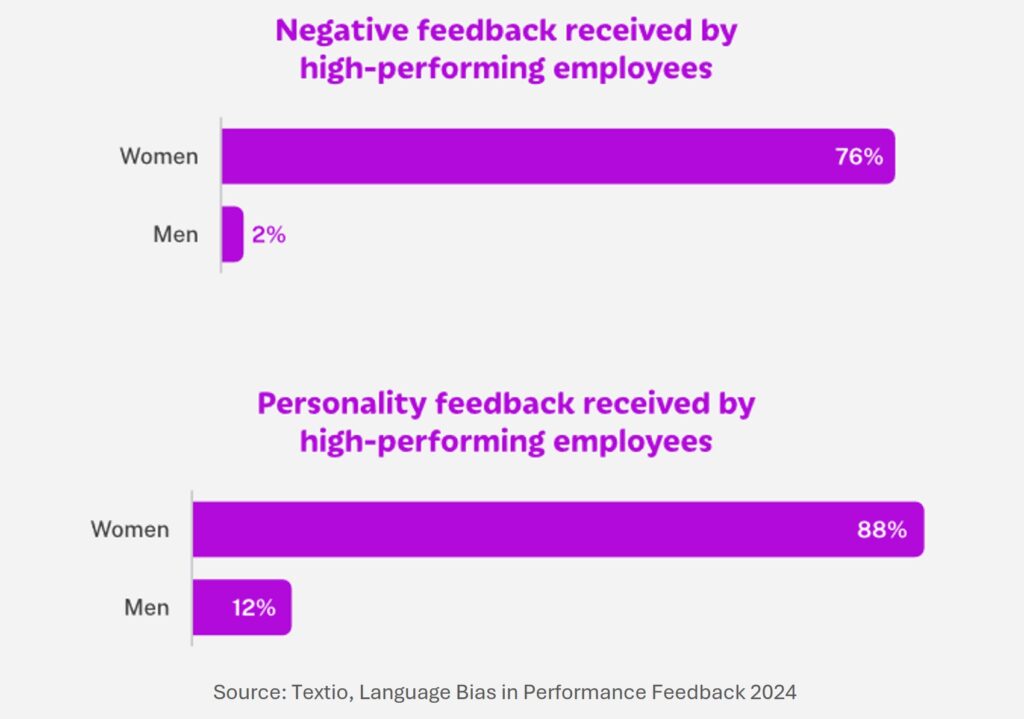
Personality feedback shows stereotype bias
Women received 22% more personality feedback than men do. The personality feedback showed stereotype bias – women were more likely to be called collaborative, helpful, and opinionated, while men were more likely to be called confident and ambitious.
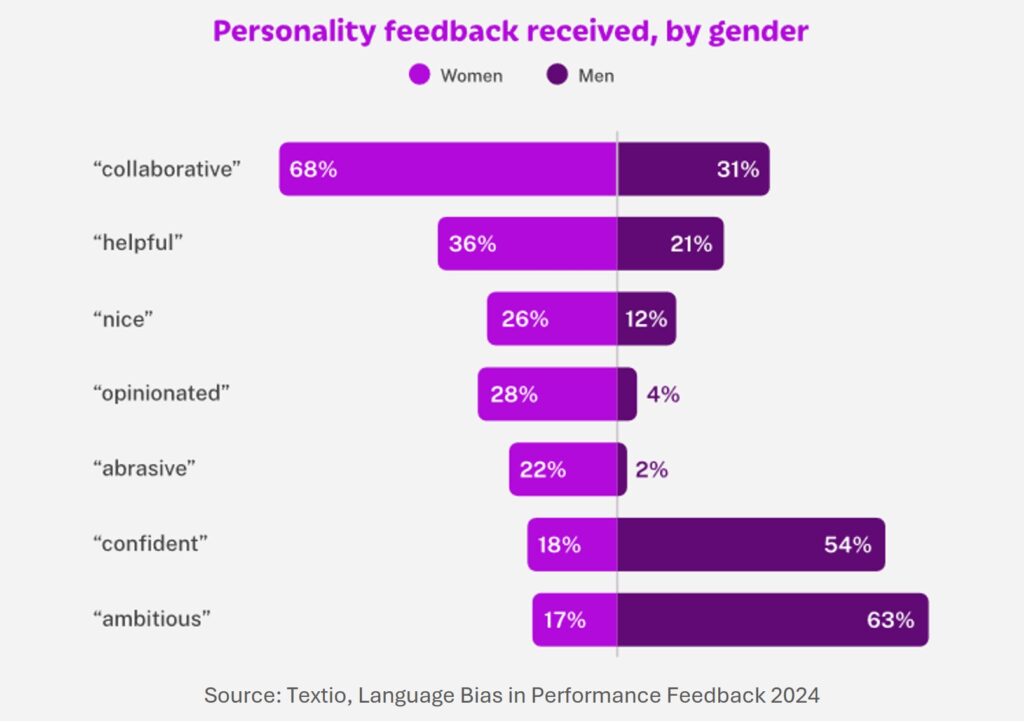
Asians and women of color, especially Asian women, were frequently applied the term overachiever. Overachiever is a term typically applied to good performers transcending low expectations.
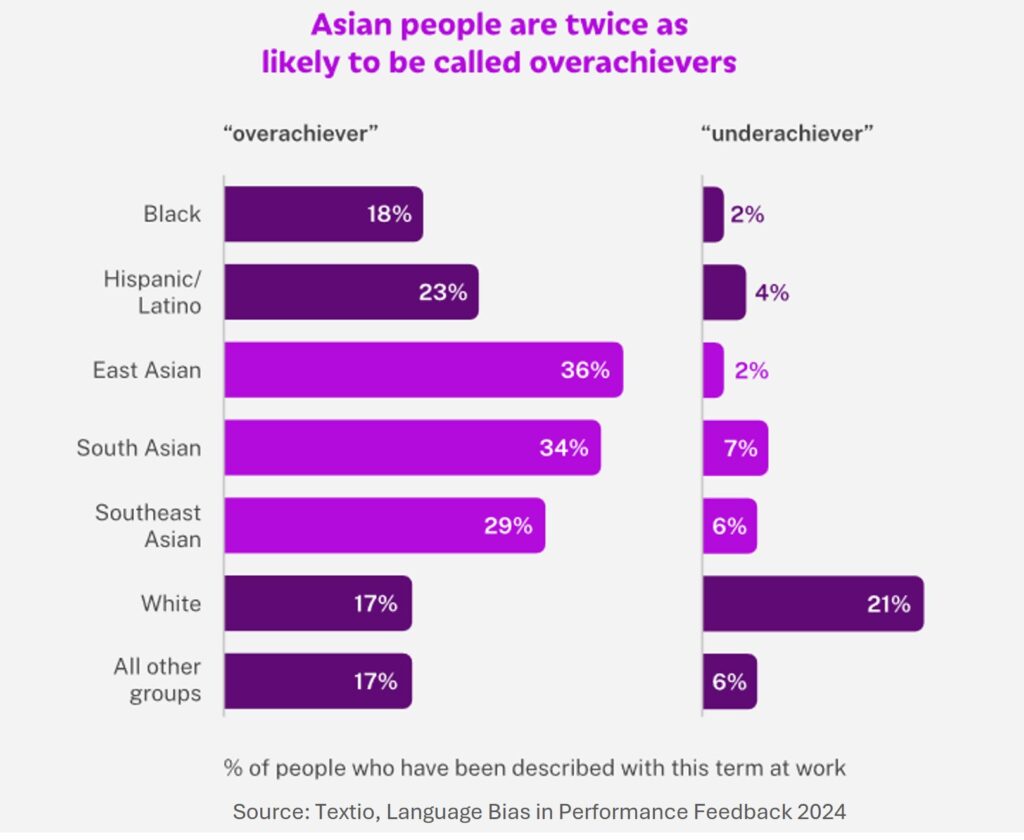
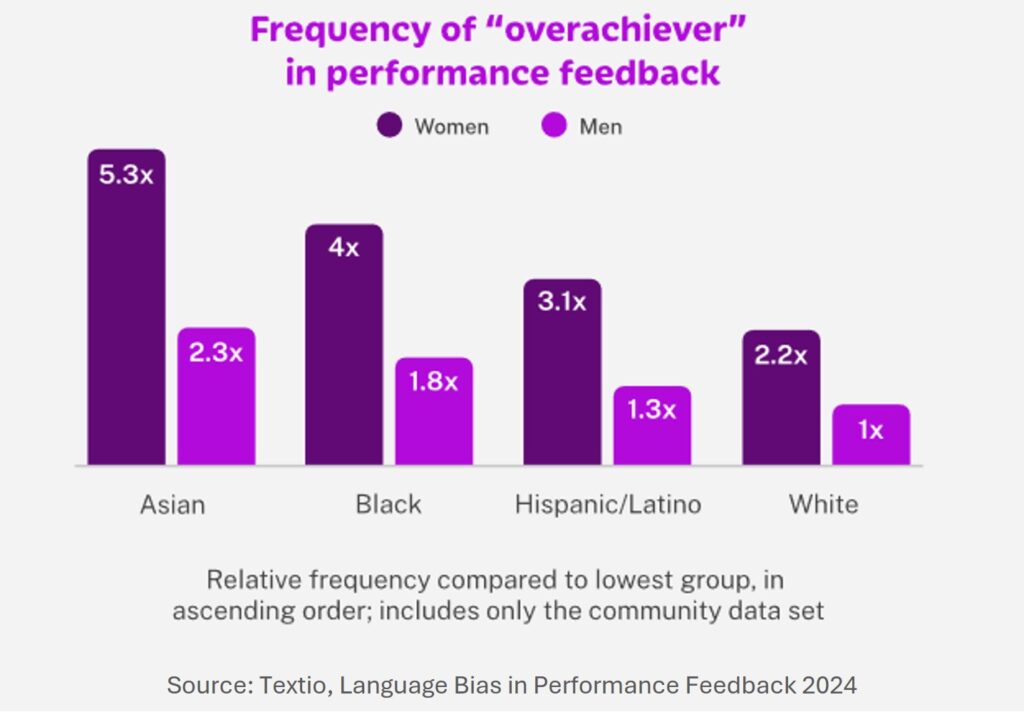
Stereotype bias in East, South, and Southeast Asians
The stereotype bias varied among Asian subgroups. On aggregate, Asians were 2x as likely to be positively stereotyped, except for Southeast Asians.
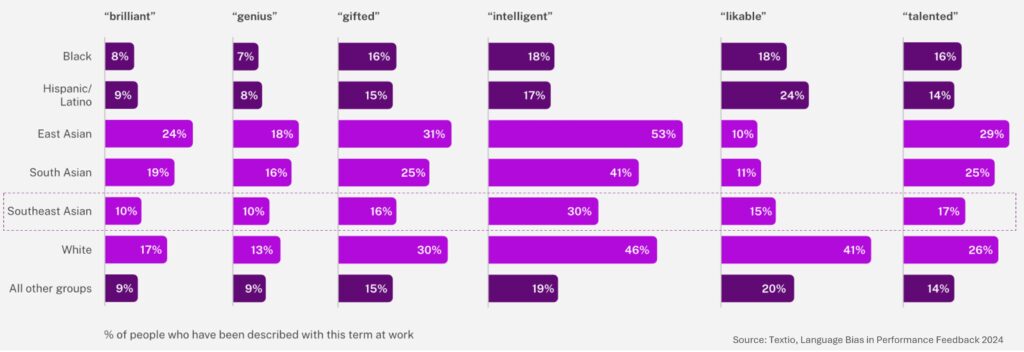
30% of South Asians were labeled difficult and 49% unlikable. East Asians were stereotyped to be less unlikable and difficult, but also viewed as less emotional.
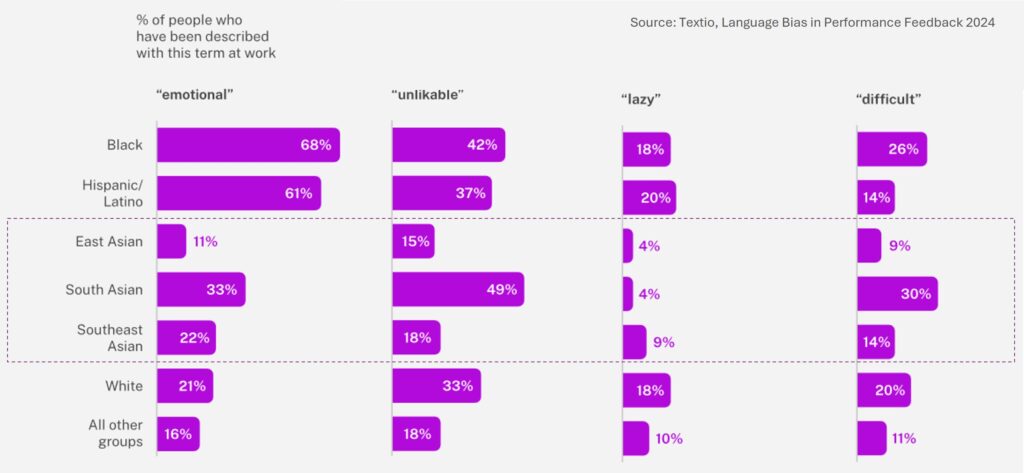
Asian men are more likely to be positively stereotyped
Asian men and White men were more likely to be identified as possessing innate intellectual ability. Asian men were 6.7x as likely to be described with the terms brilliant or genius. Leaders also have higher expectations for Asian men and White men.
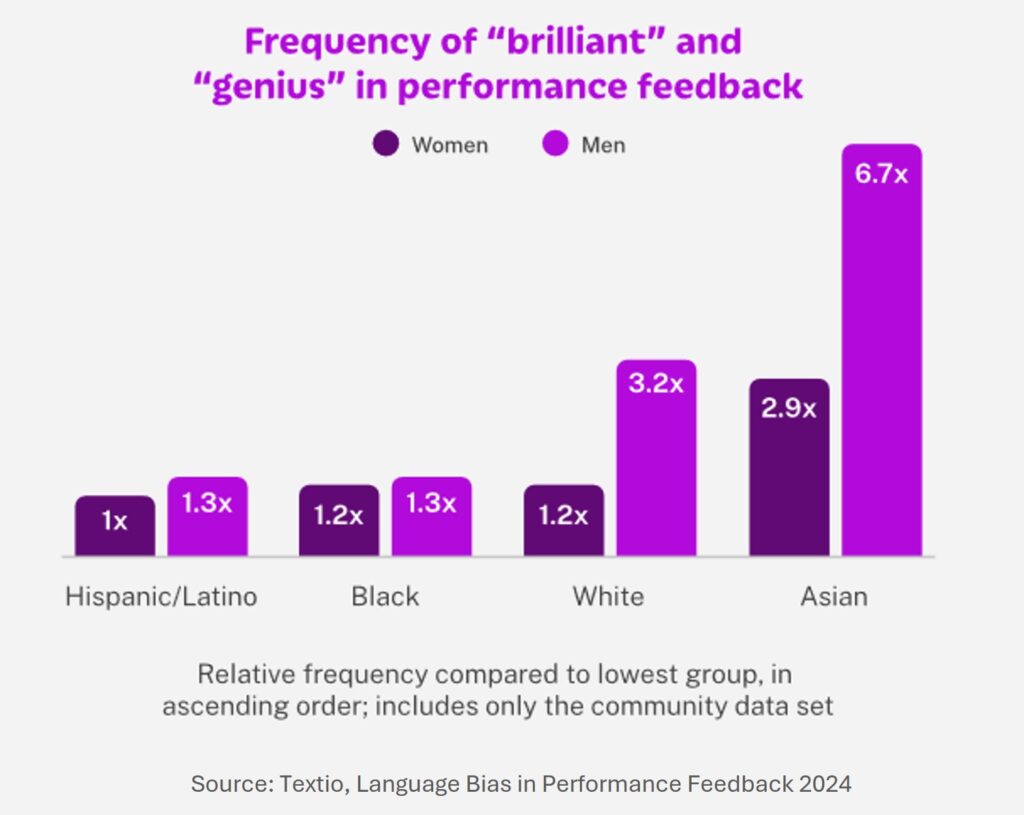
Asians are least likely to receive high-quality feedback
83% of men say that they understand what is required to earn their next promotion compared to 71% of women. Among racial groups, only 54% of Asians say that they understand what is required to earn their next promotion – the lowest among all racial groups and lower than women.
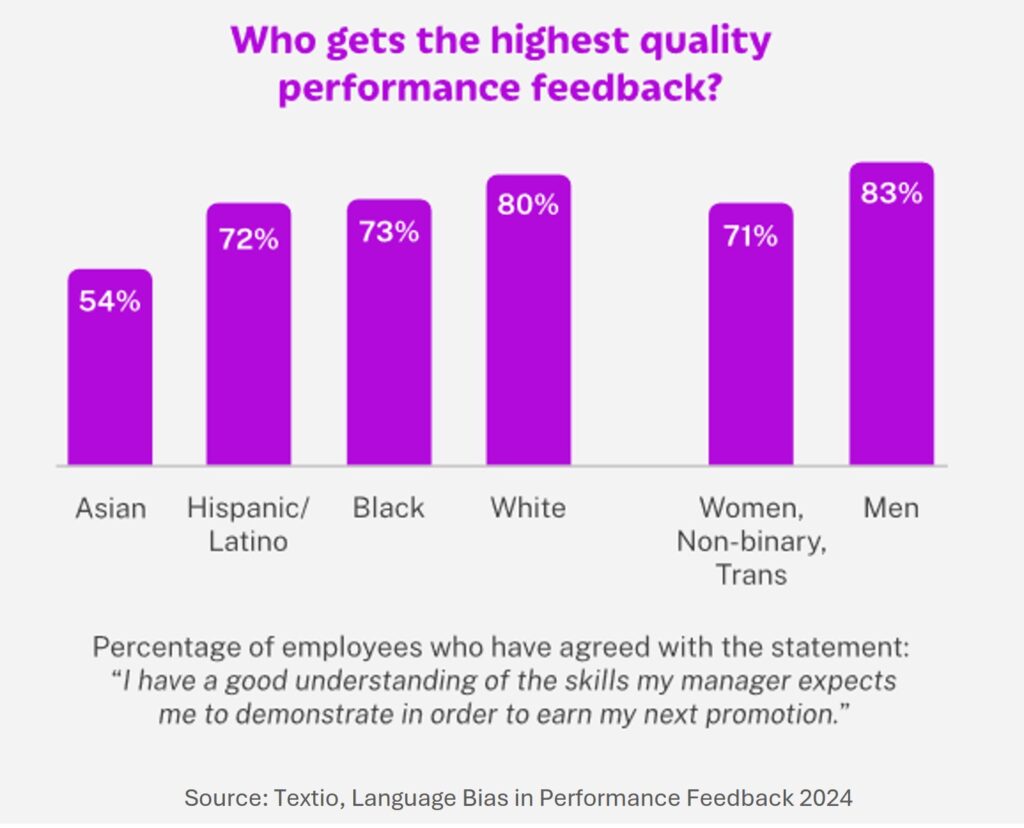
High performers receive the lowest quality feedback
On average, around 5-15% of employees in organizations are recognized as high performers, employees who are highly rated and are more productive than their peers. Ironically, high performers were found to receive the lowest quality feedback of everyone at the workplace. The situation was worse for high-performing women. While high performers receive more feedback than their peers, the feedback they receive was often the least thoughtful, more cliched, and more exaggerated, leaving them less challenged.
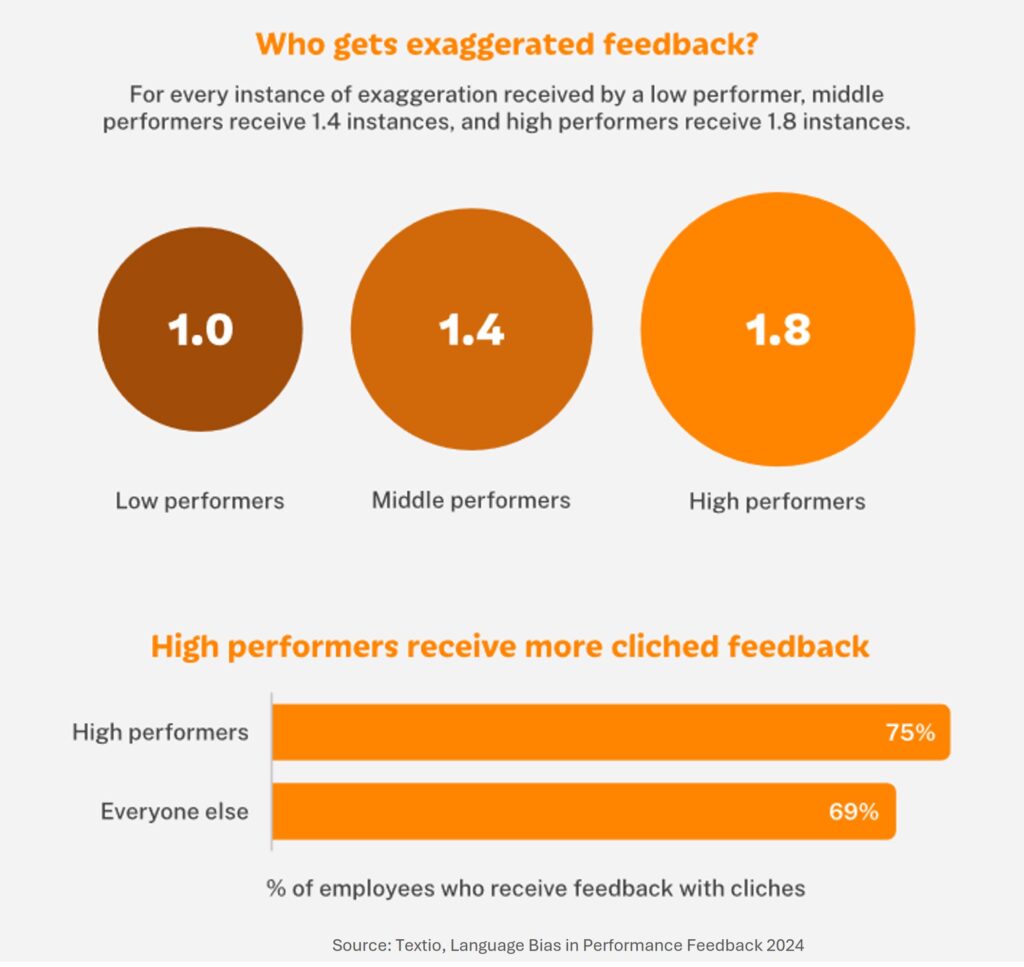
Performers with low quality feedback are likely to leave
High performers, women, and people of color all receive lower quality feedback. The research found that people who receive low-quality feedback in annual performance reviews were 63% more likely to quit their jobs within a year. This was true even when the feedback was positive in nature.
Take Action – Research/Surveys
LEAP Asian American leadership survey
Rice University Asian Americans and workplace racial equity research
Useful Resources
Language Bias in Performance Feedback 2024: Data Analysis and Survey Results (Textio)
Get a monthly dose of our latest insights!


About
myasianvoice
At MyAsianVoice, we connect Asian Americans to surveys and research to bridge the Asian data gap.
Join our growing respondent list >>
